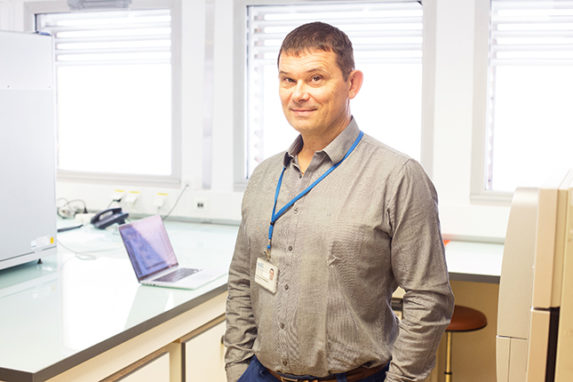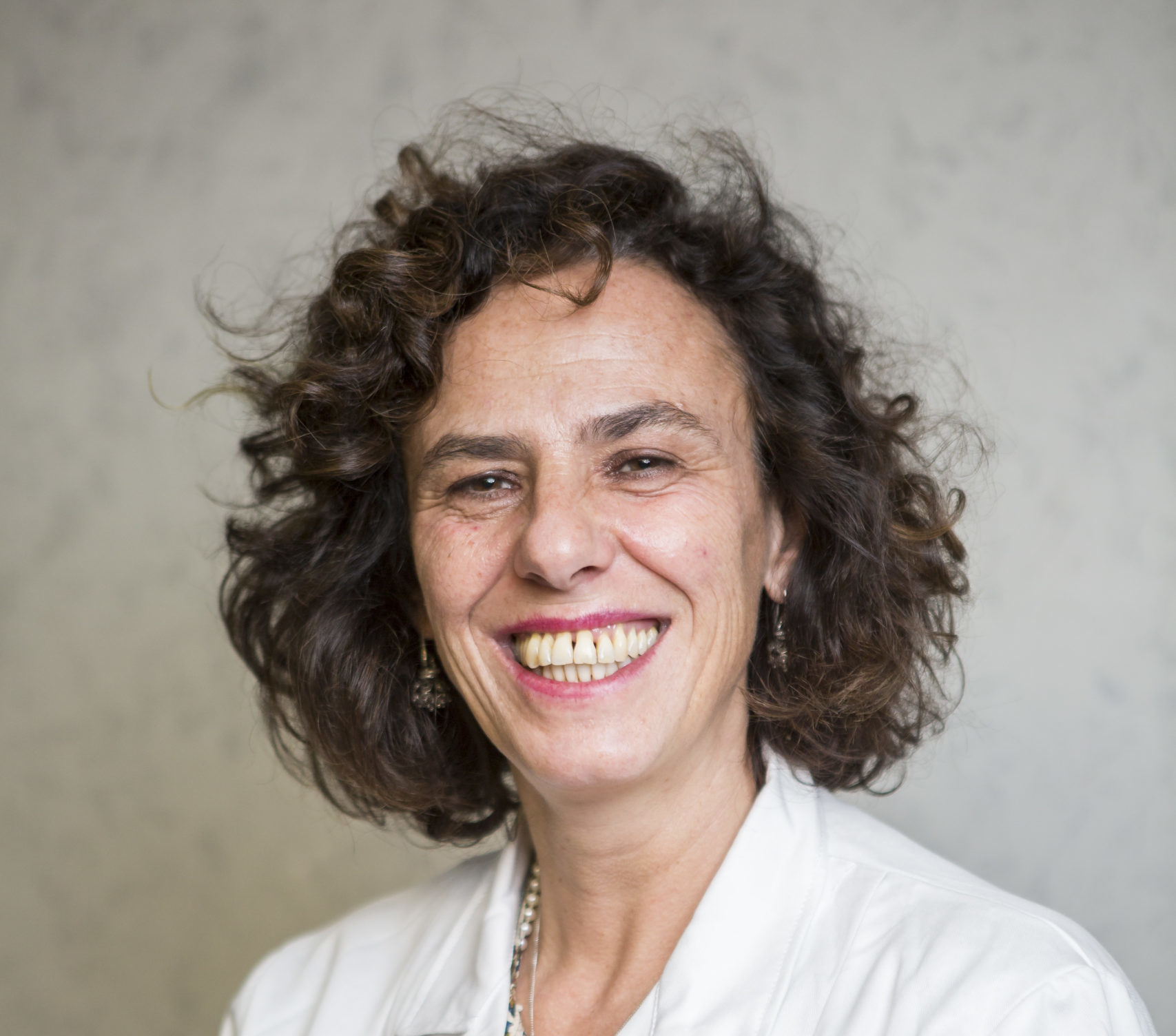touchPANEL DISCUSSION What is the current state of play of CAR T-cell therapy for B-cell malignancies? Focus on patient selection, safety and new indications
Learn about patient selection for chimeric antigen receptor (CAR) T-cell therapy, adverse event management and the latest developments in CAR T-cell therapies for B-cell malignancies from experts in the field.

Prof. Christian Chabannon
Aix-Marseille University School of Medicine, Paoli-Calmettes Institute Comprehensive Cancer Center, Marseille, France
CHAIR
Panelists:
Introduction
Chair Prof. Christian Chabannon introduces the expert panel and agenda for this discussion on the current state of play of CAR T-cell therapy for B-cell malignancies.
view bio and disclosures 1/4 Next ChapterSelecting patients for CAR T-cell therapy – Where are we now?
The panel discusses current and emerging strategies for assessing whether patients may be suitable for CAR T-cell therapy, and considers approaches for identifying eligible patients at the earliest opportunity.
view bio and disclosures 2/4 Next ChapterManaging CAR T-cell therapy-related adverse events – What is the current standard?
The panel reviews the impact of toxicity grading scales on adverse event management, and discusses approaches to management of possible short- and long-term adverse events associated with CAR T-cell therapy.
view bio and disclosures 3/4 Next ChapterFuture indications for CAR T-cell therapy – How will they change the treatment paradigm?
The panel provides an overview of CAR T-cell therapies that are undergoing clinical trials for B-cell malignancies and evaluate the clinical implications of the available data from these studies.
view bio and disclosures 4/4 Leave FeedbackOverview & Learning Objectives
Overview
In this activity, a panel of three experts share guidance on identifying patients who may be eligible for CAR T-cell therapy and review management strategies for short- and long-term toxicities related to treatment. They discuss key data for emerging indications of CAR T-cell therapy and the impact it could have on treatment pathways.
Learning Objectives
After watching this activity, participants should be better able to:
- Describe patients who may be eligible for treatment with CAR T-cell therapy
- Review the management of adverse events associated with CAR T-cell therapy
- Discuss how CAR T-cell therapy might impact the treatment pathway for new indications
Faculty & Disclosures

Prof. Christian Chabannon
Aix-Marseille University School of Medicine, Paoli-Calmettes Institute Comprehensive Cancer Center, Marseille, France
Christian Chabannon is a specialist in onco-haematology and medical oncology. Prof. Chabannon currently holds the position of Chair and Qualified Person for the Cellular Therapy Facility at Paoli-Calmettes Institute Comprehensive Cancer Centre in Marseille, France. Additionally, he is Professor of Medicine in Cell Biology at Aix-Marseille University School of Medicine.
Prof. Chabannon has held a number of positions on advisory boards for French health authorities and was Chair of Cancéropôle Provence-Alpes-Côte d’Azur (PACA), the PACA District Regional Research Council, from 2010 through 2015. He is currently Chair of the European Society for Blood and Marrow Transplantation (EBMT) Cellular Therapy & Immunobiology Working Party. As such, he has been involved in adapting the EBMT registry to enable the capture of follow-up data for patients treated with approved CAR T-cell therapies. This was achieved in collaboration with national and EU health authorities, including the European Medicines Agency (EMA), and with Marketing Authorization Holders. Furthermore, as part of this initiative, the EBMT works with all interested parties, including professional associations at national and EU levels, in order to promote transparent and global evaluation of this new class of medicinal products.
Prof. Christian Chabannon discloses: Consultant/advisory board fees from Bellicum Pharmaceuticals, Bristol Myers Squibb, Celgene, Gilead (Kite), Janssen Pharmaceuticals, Novartis and Sanofi. Speakers’ bureau fees from Gilead (Kite), Sanofi and Terumo BCT. Grants/research support from Fresenius Kabi and Miltenyi Biotec.

Prof. Chiara Bonini
Vita-Salute San Raffaele University, Milan, Italy
Chiara Bonini is Professor of Haematology at Vita-Salute San Raffaele University School of Medicine, Milan, Italy. She is also Deputy Director of the Division of Immunology, Transplantation and Infectious Diseases, and Head of the Experimental Hematology Unit at the Ospedale San Raffaele Scientific Institute.
Prof. Bonini has co-chaired numerous scientifically renowned congresses on the topic of haemato-oncology, and sits on the editorial board of peer-reviewed journals including Molecular Therapy and Frontiers in Immunology. Her main research focus is the development, and preclinical and clinical validation of T-cell-based gene therapy approaches to treat cancer.
Prof. Bonini has received several awards throughout her career; most recently, she received the Excellence in Science Award from the American Society of Gene & Cell Therapy (ASGCT).
Prof. Chiara Bonini discloses: Consultant/advisory board/speakers’ bureau fees from Allogene Therapeutics, Gilead (Kite), GlaxoSmithKline, Intellia Therapeutics, Janssen, Kiadis, Miltenyi Biotec, MolMed, Novartis, QuellTX and Sangamo Therapeutics Inc (TxCell). Grants/research support from Intellia Therapeutics. Patents in the adoptive T-cell therapy field.

Prof. Dr. Peter Borchmann
University Hospital of Cologne, Cologne, Germany
Peter Borchmann is Assistant Medical Director of the Department of Hematology and Oncology at the University Hospital of Cologne, and Head of the Lymphoma Programme including the CAR T-cell therapy phase I/II unit.
Prof. Dr. Borchmann is also Head of the Certified Center for Hematological Malignancies of the University Hospital of Cologne. As Co-Chairman of the German Hodgkin Study Group (GHSG), he is responsible for the development of investigator-initiated clinical studies. He is an active member of the German Society for Hematology and Oncology (DGHO), the European Hematology Association (EHA) and the American Society of Hematology (ASH).
Prof. Dr. Peter Borchmann discloses: Consultant/advisory board fees from Bristol Myers Squibb, Celgene, Miltenyi Biotec, KML (Kompetenznetz Maligne Lymphome), Merck Sharp & Dohme, Novartis and Takeda (Millennium Pharmaceuticals). Grants/research support from Gilead, Merck Sharp & Dohme, Miltenyi Biotec, Novartis and Takeda (Millennium Pharmaceuticals).

Register to touchONCOLOGY for FREE
- Peer-reviewed journals and expert opinions
- Interactive CME and e-learning modules
- Video conference highlights

